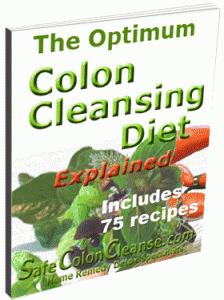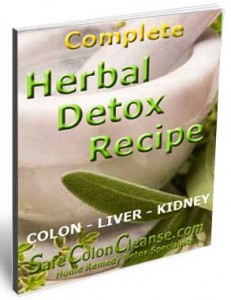Keeping your colon healthy is easy as long as you make sure to get plenty of dietary fiber each and every day. Doctors generally recommend that men eat about 40g of dietary fiber daily, while women should eat 30g.
Dietary fiber does several things for the body. First it, sweep through the intestinal tract something like a broom, keeping it clear of debris. Second, fiber reduces bowel transit time (the amount of time it takes for food to travel throught the digestive system).
In addition fiber creates strong colon muscles by giving them a solid substance to work against. Having healthy colon musculature means easier and fuller eliminations. Dietary fiber also promotes healthy bacteria to grow in the intestine and can even help get rid of some common toxins.
Specifically, there are 6 types of fibers in plants. Each of them has a different effect on the digestive system.
Pectin slows down the assimilation of food after we eat. It is a type of soluable fiber. Eaten in high enough quantities, it can help reduce symtoms of diabetes and hypoglycemia and even radiation treatments. Pectin is found in onion skin, green beans, bananas apples cabbage and beets.
Cellulose is a totally indigestible insoluble fiber found in the skins of vegetables and fruits. Cellulose can help people with colitis, constipation and hemorrhoids. Sources: wheat bran, beets skins, peas, broccoli, carrots, lima beans, Brazil nuts, pears, apples, whole grains and green beans.
Hemicellulose is another indigestible insoluble fiber. Hemicellulose holds the most water out of all types of fiber and can help with constipation, weight loss and the elimination of toxins. Sources: psyllium seeds, oat bran, apples, pears, bananas, beans, corn, cabbage, whole grains, peppers and green vegetables.
Lignin is a soluble fiber that is the non-carbohydrate cell wall material. Lignin fibers help lower cholesterol and prevent gallstones by removing bile acids before they can form stones. Sources: flaxseeds, wheat, potatoes, apples, cabbage, carrots, peaches, tomatoes, strawberries, Brazil nuts and peas.
Gums are water soluble fibers that help repair damaged tissues. Gums come from the stems or seeds of tropical or subtropical trees and shrubs. In the small intestine, gums form a gel which binds of toxins and acids and helps remove them from the body. Sources: guar gum, gum arabic, flaxseed gum, locust seed gum, psyllium seed gum.
Mucilages come only from seeds and seaweed. They are used in a kitchen to thicken sauces. In cleansing they are great for adding bulk to the intestine (thus giving the colon something to work against). The sources are: legumes, and psyllium seed husks.
Getting enough fiber daily means eating plenty of veggies and fruits (5-8 servings) and possibly including a few servings of flax seeds, salba seeds or psyllium. It’s a simple practice, but all signs point toward it being one of the most promising for preserving overall colon health.
Discover how to make a great homemade colon cleanse that’s proven to get great results. You can get access on https://www.safecoloncleanse.com




